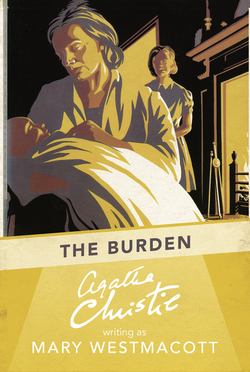Читать книгу The Burden - Агата Кристи, Agatha Christie, Detection Club The - Страница 6
PROLOGUE
ОглавлениеThe church was cold. It was October, too early for the heating to be on. Outside, the sun gave a watery promise of warmth and good cheer, but here within the chill grey stone there was only dampness and a sure foreknowledge of winter.
Laura stood between Nannie, resplendent in crackling collars and cuffs, and Mr Henson, the curate. The vicar was in bed with mild influenza. Mr Henson was young and thin, with an Adam’s apple and a high nasal voice.
Mrs Franklin, looking frail and attractive, leant on her husband’s arm. He himself stood upright and grave. The birth of his second daughter had not consoled him for the loss of Charles. He had wanted a son. And it seemed now, from what the doctor had said, that there would not be a son …
His eyes went from Laura to the infant in Nannie’s arms gurgling happily to itself.
Two daughters … Of course Laura was a nice child, a dear child and, as babies go, the new arrival was a splendid specimen, but a man wanted a son.
Charles—Charles, with his fair hair, his way of throwing back his head and laughing. Such an attractive boy, so handsome, so bright, so intelligent. Really a very unusual boy. It seemed a pity that if one of his children had to die, it hadn’t been Laura …
His eyes suddenly met those of his elder daughter, eyes that seemed large and tragic in her small pale face, and Franklin flushed guiltily—what had he been thinking of?
Suppose the child should guess what had been in his mind. Of course he was devoted to Laura—only—only, she wasn’t, she could never be Charles.
Leaning against her husband, her eyes half closed, Angela Franklin was saying to herself:
‘My boy—my beautiful boy—my darling … I still can’t believe it. Why couldn’t it have been Laura?’
She felt no guilt in that thought as it came to her. More ruthless and more honest than her husband, closer to primeval needs, she admitted the simple fact that her second child, a daughter, had never meant, and could never mean to her what her first-born had. Compared with Charles, Laura was an anti-climax—a quiet disappointing child, well-behaved, giving no trouble, but lacking in—what was it?—personality.
She thought again: ‘Charles—nothing can ever make up to me for losing Charles.’ She felt the pressure of her husband’s hand on her arm, and opened her eyes—she must pay attention to the Service. What a very irritating voice poor Mr Henson had!
Angela looked with half-amused indulgence at the baby in Nannie’s arms—such big solemn words for such a tiny mite.
The baby, who had been sleeping, blinked and opened her eyes. Such dazzling blue eyes—like Charles’s eyes—she made a happy gurgling noise.
Angela thought: ‘Charles’s smile.’ A rush of mother love swept over her. Her baby—her own lovely baby. For the first time Charles’s death receded into the past.
Angela met Laura’s dark sad gaze, and thought with momentary curiosity: ‘I wonder just what that child is thinking?’
Nannie also was conscious of Laura standing quiet and erect beside her.
‘Such a quiet little thing,’ she thought. ‘A bit too quiet for my taste—not natural for any child to be as quiet and well-behaved as she is. There has never been much notice taken of her—maybe not as much as there ought to have been—I wonder now—’
The Reverend Eustace Henson was approaching the moment that always made him nervous. He had not done many christenings. If only the vicar were here. He noticed with approval Laura’s grave eyes and serious expression. A well-behaved child. He wondered suddenly what was passing through her mind.
It was as well that neither he, nor Nannie, nor Arthur and Angela Franklin knew.
It wasn’t fair …
Oh, it wasn’t fair …
Her mother loved this baby sister as much as she loved Charles.
It wasn’t fair …
She hated the baby—she hated it, hated it, hated it!
‘I’d like her to die.’
Standing by the font, the solemn words of baptism were ringing in her ears—but far more clear, far more real—was the thought translated into words:
‘I’d like her to die …’
There was a gentle nudge. Nannie was handing her the baby, whispering:
‘Careful, now, take her—steady—and then you hand her to the clergyman.’
Laura whispered back: ‘I know.’
Baby was in her arms. Laura looked down at her. She thought: ‘Supposing I opened my arms and just let her fall—on to the stones. Would it kill her?’
Down on to the stones, so hard and grey—but then babies were so well wrapped up, so—so padded. Should she? Dare she?
She hesitated and then the moment was gone—the baby was now in the somewhat nervous arms of the Reverend Eustace Henson, who lacked the practised ease of the vicar. He was asking the names and repeating them after Laura. Shirley, Margaret, Evelyn … The water trickled off the baby’s forehead. She did not cry, only gurgled as though an even more delightful thing than usual had happened to her. Gingerly, with inward shrinking, the curate kissed the baby’s forehead. The vicar always did that, he knew. With relief he handed the baby back to Nannie.
The christening was over.
